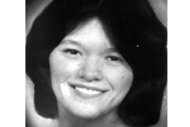Create a free profile to get unlimited access to exclusive videos, breaking news, sweepstakes, and more!
Where Are Tommy Ward And Karl Fontenot Today? 'The Innocent Man' Prisoners' Story Isn't Over
Tommy Ward and Karl Fontenot were sentenced to death in 1985 for the murder of Denice Haraway, despite the fact that their confessions didn't match the crime they were accused of.

Denice Haraway of Ada, Oklahoma went in for an ordinary day of work at her convenience store job on April 28, 1984. However, she would never be seen alive again.
The young woman's disappearance sparked decades of controversy as police scrambled to solve the crime, leading to the convictions of two men: Tommy Ward and Karl Fontenot. The tribulations faced by the pair are depicted in Netflix's latest true crime docu-series, "The Innocent Man," based on the John Grisham book of the same name. The two insisted they were innocent, but still ended up convicted of Haraway's murder. So where are the two men now, more than 30 years later?
[Warning: Spoilers for "The Innocent Man" ahead!]
The circumstances surrounding Ward and Fontenot's confessions were suspicious from the start, and in fact were later proved to be inconsistent with what had actually happened to Haraway: Her body was ultimately found years after she vanished, 30 miles away from where the duo said they had deposited it. More damningly, Haraway had not been been stabbed as the young men had described. Instead, she had died from a gunshot wound.
The only evidence the state used in convicting Ward was a confession that he later claimed was spun wildly from a dream he reported, and only came out after intense pressure and hours of brutal interrogation. Meanwhile, Fontenot, as explained in the Netflix series, had perhaps offered his testimony to the aggressive police because he both feared for his safety and wanted to escape from what was described as poverty and homelessness.
"Everything about their confession has been proven wrong by the discovery of the body," attorney Janet Davis noted in the documentary.
Both Ward and Fontenot would go on to recant their confessions.
“I’ve never been in jail or had a police record in my life and no one in my face telling me I’d killed a pretty woman, that I’m going to get the death penalty, so I told them the story hoping they would leave me alone. Which they did after I taped the statement," Fontenot said almost immediately after his interrogation, as described in Grisham's book. "They said I had a choice to write it or tape it. I didn’t even know what the word 'statement' or 'confessing' meant 'til they told me I confessed to it. So that’s the reason I gave them an untrue statement so they would leave me alone.”
Ward and Fontenot were sentenced to death on January 21, 1985 after being found guilty of murdering Haraway. Ward and Fontenot were both granted a retrial a few years later, and again found guilty of Haraway's death. Fontenot was sentenced to death — again —but Ward was sentenced to life in prison, according to The Oklahoman.
The Oklahoma Innocence Project, an organization that helps to exonerate those wrongfully convicted, attempted to take on Fontenot's case in 2013, but its appeals were denied in 2015. The organization has not offered an update on the status of their efforts.
John Grisham continues to correspond with both men. In a 2017 interview with The Marshall Project, the author discussed their fates.
“I received Christmas cards last week from both Tommy Ward and Karl Fontenot, so we keep in touch," Grisham said. "They have now been in prison for 31 years, serving hard time for a murder committed by someone else. Both are model prisoners. Tommy has been recommended for parole at least twice, but turned down by the board in Oklahoma. Both have excellent teams of lawyers who continue to work for their release.”
The conclusion of "The Innocent Man" docu-series notes that Ward's post-conviction filing has been opposed by the state, but that a judge will review the case in 2019. Ward's attorney, Mark Barrett, will also be filing an appeal for exoneration. He is currently serving time at the Dick Conner Correctional Center in Hominy in Oklahoma. He is now 58 years old and says he will not admit guilt even if it means improving his chances at parole.
Fontenot is currently awaiting the results of a federal appeal. He is 54 years old and is being held at the at the North Fork Correctional Center in Sayre in Oklahoma.
[Photo: Netflix]























